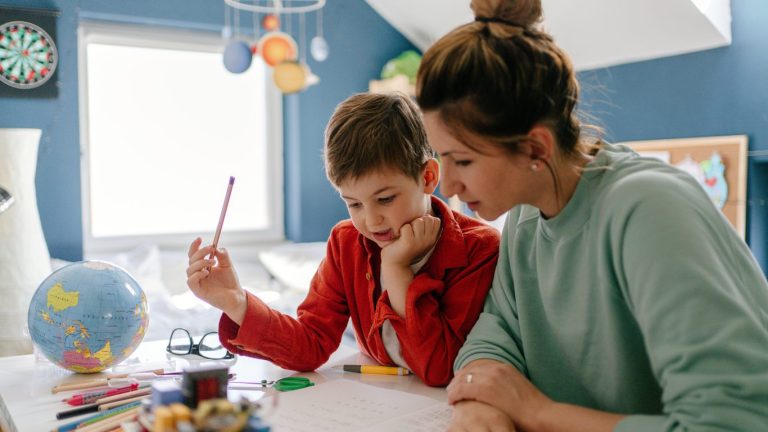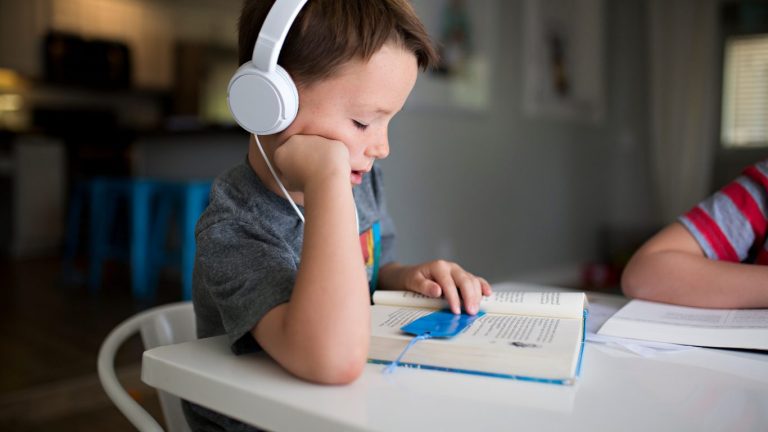Surviving Toilet Training
| Dear Diane, My son is fantastic! He’s fun to be around a great fun… until it come to putting ‘poos’ in the toilet. I’m trying to keep it low key and not make a huge issue out of it – but it is tiring and keeps the washing machine busy. He’s happy enough to put ‘wees’ in there if I ask him, he used to initiate but he’s stopped now…help! QsMum |
Dear QsMum ,
Many parents struggle with a child who appears to know what they are doing in terms of toilet training because they can hand on to their “wee”, recognise that they have full bladder and then go and wee in the toilet or potty. The same child may, however, not be able to manage poo-ing in the toilet or potty.
If our child knows when their body need to poo and can hang on till they get to their favourite spot, we can comfort ourselves that they are “toilet-trained” and the only thing we are struggling with is location. He is finding the step from poo-ing in nappies to poo-ing in the toilet too big for him to manage.
If we can get him back to the point where he trusts us and his body, he can begin to progress. Usually, we need to go backwards a few steps in order to go forwards.
I recommend that you tell your child that, when his body needs to poo he can ask you to have a nappy put on. He can then go away and poo and when he is finished, you will be happy to change him. Once he is confidently asking for a nappy, going off and poo-ing easily and then happily getting changed, let the system run for a week.
The second step is to change location only. When he needs to poo, he gets his nappy on and then he goes to the room where everyone else poos – the room with the toilet in it. When he is finished, change him as pleasantly as you can manage. Let this system run for a week.
The third step is for him to teach his body how to poo on the toilet or potty. When he needs to poo, he gets his nappy on and sits on the loo (nappy on) to poo.
After about a week children usually do the fourth step by themselves. They decide that they can poo in the toilet. Usually, you will get a call, “Hey Mum! Come and look what I’ve done!”
It is time to celebrate,
I would confidently expect that sometime during this four-step process, he will initiate wee-ing when his body need to.
Nightwaking
| Dear DianeI went to hear you speak in Tauranga and really connected with what you had to say. I would love to hear your suggestions on what to do about nightwaking.
We have two boys (a 2 year old & a 3 year old) who share a room – both sleeping in beds. They each wake once or more during the night, come and find me in my bed and want a cuddle (or a nappy change), or a drink, or to go to the living room or some other thing). They are usually easily taken back to their room and tucked back into bed. I’m getting really tired with these broken nights of sleep and would love some ideas on how to encourage them to stop doing this. Thanks 2nzboys |
Dear 2nzboys
All of us (well, those of us who aren’t having our sleep interrupted by our children) have a natural sleep cycle whereby we gradually go into a deep sleep, surface into a light sleep and repeat this cycle every hour to hour-and-a half through the night. When we surface, we usually just go back into a deep sleep.
Your children have trained themselves so that, when they surface, they become fully awake and then go on a hunt for entertainment. Because it wouldn’t go down to well if they said, “Mum! I’ve just shown up to disrupt your sleep and get a bit of light entertainment”, they are smart enough to come up with a genuine-sounding request. This gets you up and has you doing nice things for your boys – whatever they want – so that you can get back to you nice warm bed.
I would teach them that getting you up is a pretty unrewarding process. Try and be as mechanical and robotic as you can. Taking them back to bed without a word is very powerful. If it is too hard to keep silent, confine yourself to saying very gruffly, “I don’t like being woken up.” Having escorted them back to bed, go back to sleep.
If all goes well, you will be so unsatisfactory, that your boys will not be bothered to get up and visit a grouchy Mum who won’t speak, refuses all services and just marches them straight back.
Star Charts
| Hi there Diane I would love to hear your opinion on the use of star charts. I have a three and a half year old boy who is a great wee guy but also very determined so often we have a few battles. I have thought about introducing this system for different things such as cleaning teeth, picking up toys after getting them out and so on, however I would like to know what other type of things star charts can be used for, for example should they be used for just general behaviour like “being a good boy”. Also how to use them properly and so on.After having just experienced lots of battles today I would love some advice – sorry about all the questions!
Cheers sootycat |
Dear Sootycat,
I find that star charts are very useful for encouraging children to develop good habits (like going to the toilet) and good sequences e.g. getting ready in the morning which might mean a list of behaviours (either doing it himself or cooperating with your help) like:
Get dressed
Have breakfast
Clean teeth
Wash face
Lunch in lunch-box
Shoes and socks on.
I don’t think that star charts are the best way to get ordinary compliance or “being good.” The best way to get ordinary compliance is to promise yourself that once you have asked your child to do something, you will see it through until it is done.
Use a system of ASK, TELL, ACT. ASK him once. If that isn’t powerful enough, go right over to him, stand tall and TELL him what to do. If that isn’t powerful enough you need to ACT. Put him in his room until he is ready to do as asked. When he does, enthusiastically thank him for his helpfulness.
Once he is readily doing each task under close supervision, it is time to teach him the sequence of getting ready in the morning. To teach a child good habits I prefer a “double-chart” system – a fresh list to do each day and a star chart on the fridge where you celebrate each time he gets through the list.
Each morning give him a clip-board with a list of things that he needs to do to get ready. Have a little picture next to the word (so he can “read” what the next task is) and a so that he can tick it off when it is done. Initially, he will need to do each task and then rush back for recognition. Eventually, he will learn the sequence of “Getting ready.”
To form a habit takes twenty-one days, so I favour a start-chart that has any picture that will appeal to him with 1 – 21 on it. Have ready a packet of felt-tip pens and a packet of Smarties.
When he has done all the tasks, tell him he is wonderful and you need to out a star on his chart. Ask him which colour star he would like and which number he wants you to put it on. Then ask him what colour Smartie he would like. Be sure to get him to show off his chart to anyone who comes into the house.
After twenty-one times he has successfully completed his list, he has developed the habit of getting ready. Time to go and celebrate.
Help Us Diane!!!
| Hi Diane, I am having 2 problems which I would love some feedback on. Getting my 9 month old to sleep through the night – just how is the best way to cut out those bottles? And my 5 year old who is a generally loving, caring, well mannered boy is really bossy with his friends. How do I teach him to speak nicely to others?? help!mrsvea |
Dear Mrsvea
The first step is to get rid of the bedtime bottle. If your nine-month old goes off to sleep with a bottle, he will expect a bottle to get him off to sleep the next time he wakes.
Instead, give him his last bottle for the day in the living room while he is still wide awake. Then take him to his cot, tuck him in and kiss him goodnight. If he cannot get to sleep easily on his own (because he is used to a bottle to get off to sleep) take a book and a chair and sit with him till he goes off to sleep.
In the middle of the night, just take a duvet, wrap yourself up, sit in the bed next to his cot, mutter “Mum’s here. You’re fine” and doze there till he is asleep.
That way you are giving him support but no drink or entertainment.
When a generally well-mannered is five-year-old is bossy with his friends, the odds are that the group of boys haven’t developed a good system of deciding what to play and who should be “the boss” and whose choice of game counts.
We have a strange system of socialising in New Zealand. If goes something like this: when you are the host, it is polite to play the games your guest wants to play and when you are the guest, it is polite to play what your host wants to play. If he is working according to this system, it means that he never gets to choose what he wants.
When the boys are under your care, stay close and help them to sort out what they are going to do. Get them to agree that they will be good sports and play the games that the other chooses. Then teach them how to “draw straws” or throw a dice (you will have to decide ahead if “one” or “six” is the winning number) to decide the order of play.
Keep an ear up for signs of disharmony or bossiness. The solution is probably afternoon tea!
Starting School
| Hi Diane, My youngest has been at school since the start of the year but is still crying every morning and doesn’t want to get on the bus. She says the other girls (only 3 in her class at present) don’t want to play with her and she is not bossy enough to just go and play with them anyway! She is very bright and says the boys distract her so I am not really sure what the problem is!We have a smiley face chart which gets used when she goes to school without crying but I am getting reports of also crying during the day.
Going to school makes it worse as she wants to come home with me. Help?! leezjo |
Dear Leezjo
It sounds as if your youngest is finding school tough and hasn’t got the emotional resources to take her through separating from Mum, getting on the bus and coping away from you all day.
The lack of clarity about what is bothering her, makes it far more likely that she feels unsupported and lonely and hasn’t quite got the “joining in” skills that would make her school life less threatening and less solitary. Rewarding her for not crying is unlikely to help her learning better coping or joining skills.
Her teacher is her “Mummy” for the day and is the best person to help her through. Have a private chat with her. The best way for your daughter to start school would be to have someone friendly on the bus to keep her company and to “hand her over” to her teacher. That way, she doesn’t have to fend for herself till she gets into her teacher’s orbit.
Once she is with her teacher, she needs a friendly greeting and a few supervised tasks to do so that she can feel part of school.
At morning interval and lunchtime, she needs adult help to join the group of girls and sufficient supervision so that the girls are not unkind and excluding. (With only four girls in the class, it is imperative that there is an atmosphere of inclusion and that the teacher is clear that she will not tolerate any child being sidelined!)
Ensuring that a child is doing well socially is as important to their happiness and learning as teaching them academic skills. The teacher is the best person – and the person with the responsibility – to ensure that this happens during school.
If would also be helpful to pick off the other girls one at a time and have them over to play so that your daughter can develop individual friendships with them.






We have had a similar problem. My daughter recently started school at the end of the year as I thought it would be helpful for her to spend the last 6 1/2 weeks of the year at school. The first week was fine, then she started crying and clinging to me when I had to leave her at school. I take her to her classroom and wait till she has done her morning jobs and found a friend. However she won’t stay with friends or in the classroom unless the teacher holds her while I leave. There is only 4… Read more »
Hi Nicole I work with schools and parents to support children through their transition to school. It sounds like your daughter is taking some time to adjust in her transition. For some kids, they find the transition easy, for others it takes quite a while. My daughter, for example, took over a term to settle into the routines. We found she particularly played up when it was me doing the drop offs….not so much her Dad. I think the key comment you’ve made though is that the teacher and principal have both observed she is settled five minutes after the… Read more »
Thanks for your feedback, it really helps to know it’s just a matter of time and to keep being firm and matter of fact.
Hi Diane Help! We have been trying to potty train our daughter. We have put her in undies and have told her where to go wees etc and this is fine. She is happy to sit on the toilet or potty. However she won’t release! She will dance around holding herself until she can’t hold it any longer but seems to be petrified of actually going in the toilet. We have praised her up, had Teddies and dolls on the toilet, we have a magic stick, we’ve poured water in, we’ve read books etc etc. Nothing seems to work. She… Read more »
Hi Leverne,
Diane has answered your question here: http://www.kiwifamilies.co.nz/2013/03/toilet-training-your-children/
Hope it helps!
Rochelle
There are also some thoughts on our Facebook page here: https://www.facebook.com/kiwifamilies/posts/492387737486526?comment_id=4730784&offset=0&total_comments=16¬if_t=feed_comment